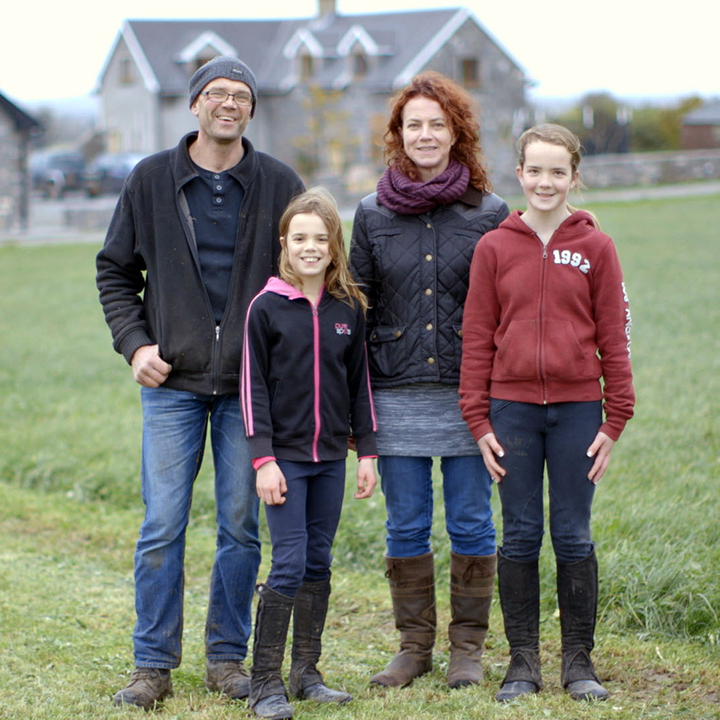
something about
goats always
interested me
The Boons family farm is situated outside the village of Lorrha, in North Tipperary. The 57 acre farm was originally part of the Redwood Castle Estate and sits on the borders of three counties – Offaly, Galway and Tipperary.
Home to Jan, Monique and their daughters, Julia and Kayla, and Freddie (the family dog) is a beautiful old farmhouse, lovingly restored. The farm has 200 goats and about 50 kids; The Boons breed mostly Saanen goats, distinctive for their dramatic white coats, and also a small number of the French Alpine variety. Each goat produces about three litres of milk per day.
From Holland originally, Jan and Monique met at agricultural college and dreamed of starting their own farm. Jan was brought up on an organic dairy farm in Holland and had long harboured a plan to work with goats. After much research, the Boons settled in Ireland in 1999 and began to supply Glenisk with fresh goats’ milk.
why goats?
“Something about goats always interested me”, says Jan. “They are independent, lively and dynamic animals with a very distinct temperament. For me, goat farming is a business but I’d also describe it as hobby. You can’t work seven days a week at something if you’re not passionate about it.” Jan believes it is more challenging to work with goats than other animals and he sees it as a partnership approach: “Goats react badly to stress so it’s important to work with them, to ensure their living conditions are comfortable and that their routines are upheld.”
Demand for goats’ milk has increased in recent years, with growing anecdotal evidence that it may be beneficial for those with asthma, eczema and digestive complaints. At Glenisk, we are always amazed at the letters we receive outlining the way in which switching to goats’ milk has apparently transformed health and alleviated symptoms. Many people are also surprised at how mild and creamy fresh goats’ milk tastes.
good food on the farm
While Jan is mainly responsible for the goats on the farm, Monique is kept busy with other projects. As well as part-time work and caring for the girls, she grows her own organic fruit and vegetables and raises chickens. She is also a fantastic baker as we discovered during our visit when she treated us to some home-made strawberry cheese cake, created with goats cheese.
The girls, who are fluent in both Dutch and English (as well as diligently learning Irish), also help out on the farm, but it competes with lots of other interests. As well as school, Julia and Kayla are busy with extra-curricular activities including sports and especially horse-riding.
The Boons have also recently renovated one of the old farm buildings which is now a self catering cottage. Available to rent throughout the year, the cottage allows you to escape the hustle & bustle and enjoy life on the farm.
